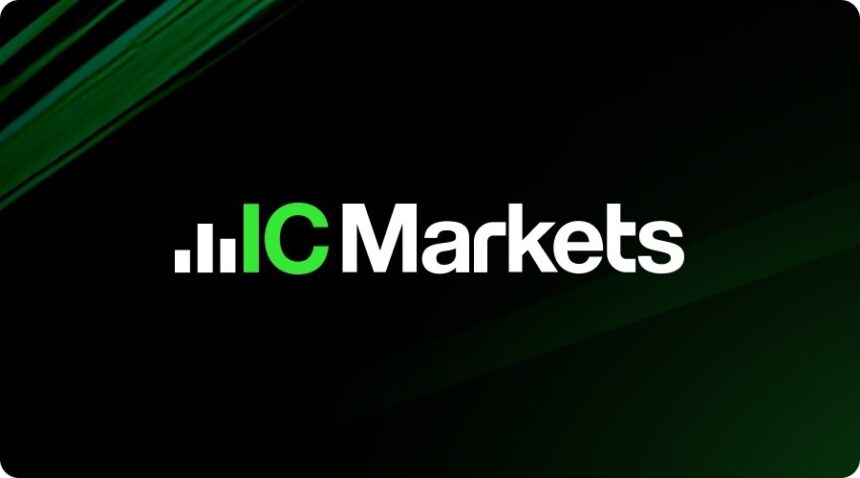IC Markets is a well-regarded ECN broker favored by high-frequency traders and experienced operators. Known for its low latency, raw spreads, and high transparency, IC Markets is a strong contender if you’re looking for fast execution, deep liquidity, and a clearly regulated trading environment.
This article breaks down the platform’s background, account structure, frequently asked questions, comparisons with competing brokers, and objective scoring from BrokerHive — offering a comprehensive view of a platform often described as a “professional-grade trading bridge.”
Company Background & Regulatory Framework
Founded in 2007, IC Markets is owned by International Capital Markets Pty Ltd, headquartered in Sydney, Australia. Over the years, it has expanded its regulatory footprint to cover various global jurisdictions:
- FSA (Seychelles)
This multi-jurisdictional structure provides access to traders in different regions, while offering reassurance through asset segregation and transparent auditing. Client funds are typically held with top-tier institutions like National Australia Bank (NAB) and are subject to third-party audits and risk controls.
Unlike brokers that operate under light or no regulation, IC Markets stands out with a more robust and credible compliance setup.
Account Types & Liquidity Model: The Dual Engine Behind Execution
As a true ECN broker, IC Markets operates with no dealing desk (NDD), using straight-through processing (STP) and ECN routing to Tier-1 liquidity providers. This means users get access to raw market pricing, with minimal intervention.
Instruments offered include:
- 70+ FX pairs
- Indices, metals, commodities, bonds
- Crypto CFDs (region-dependent)
- Global stock CFDs (US, EU, Asia)
Main account types:
- Raw Spread (ECN) – Ultra-tight spreads (as low as 0.0 pips), $3.5 commission per side per lot
- Standard Account – Slightly higher spreads (from 1 pip), zero commission; beginner-friendly
- Islamic Account – Swap-free, Sharia-compliant
Minimum deposit: $200
Supported platforms: MetaTrader 4, MetaTrader 5, and cTrader (desktop, web, and mobile)
Personal recommendations:
- If you’re new, start with a Standard Account to learn the platform and market behavior.
- Active traders (scalping, pending orders, or EAs) will benefit from the Raw Spread account’s lower costs.
- For automated or signal-based trading, MT5 or cTrader offer more flexibility than MT4.
- If swaps affect your strategy or religious practice, ask customer support about activating a swap-free account.
Regardless of your choice, use a demo account to backtest strategies and assess execution quality — especially for automation — before going live.
- Common Questions About IC Markets
Q1: Is IC Markets beginner-friendly?
Not exactly. While it offers tutorials and demo access, the interface leans professional. It’s better suited for traders with some foundational knowledge.
Q2: What deposit/withdrawal methods are supported?
IC Markets supports bank transfers, credit/debit cards, Skrill, Neteller, and USDT (in select regions). Withdrawals are typically processed within 1–2 business days, mostly fee-free.
Q3: Are demo accounts available and unlimited?
Yes — free demo accounts with no expiry, ideal for strategy testing or platform familiarization.
Q4: Does it offer funded challenges or growth accounts?
No. IC Markets focuses on real trading and does not offer proprietary trading challenges or funding programs.
Q5: Which trading platforms are available?
MT4, MT5, and cTrader. For high-frequency or automated trading, cTrader is highly recommended.
Q6: How is client fund security handled?
Client funds are fully segregated in top-tier banks (e.g., NAB), independently audited, and protected under ASIC and CySEC oversight.
How IC Markets Compares to Other Brokers
点击图片可查看完整电子表格
Bottom line: For traders focused on strategy execution, low costs, and platform reliability, IC Markets offers a more consistent environment than many of its competitors.
Advanced users benefit from fast fills, institutional liquidity, and seamless automation support. However, those completely new to trading may find the lack of handholding or gamified elements a bit overwhelming.
BrokerHive Score: 6.23 – A Balanced, Performance-Driven Platform
IC Markets brokerhive scores well across key metrics:
- Transparency: 9.5/10
Real-time market quotes, auditable spreads — ideal for cost-sensitive traders. - Execution & Liquidity: 9.2/10
Global server distribution (NY, London, Frankfurt) and robust slippage control. - Regulation & Fund Safety: 8.8/10
Multi-region licenses, segregated client funds, regular compliance checks. - UX & Support: 7.9/10
Mostly solid — though interface leans professional and support is primarily FAQ/chat-based.
With tightening global oversight of leveraged products (e.g., crypto CFDs, futures), many former high-risk traders are migrating back to regulated brokers like IC Markets. Its ECN infrastructure and commitment to “pure trading” have renewed appeal among serious users.
Final Thoughts
IC Markets doesn’t try to be flashy — there are no trading contests, funding gimmicks, or signup bonuses. What it offers is a clean, reliable, execution-first environment, ideal for traders who know what they’re doing and need tools that work without interference.
This platform isn’t for everyone — especially not for those chasing quick wins or bonus-driven leverage. But if you’re focused on strategy, execution quality, and long-term discipline, IC Markets may be one of the most important platforms you’ll use on your trading journey.
Want to compare IC Markets to other top brokers in terms of regulation, pricing, and automation support?
BrokerHive provides verified data, transparent scoring, and side-by-side comparisons of the world’s top brokers — helping you find what truly fits your trading goals.


